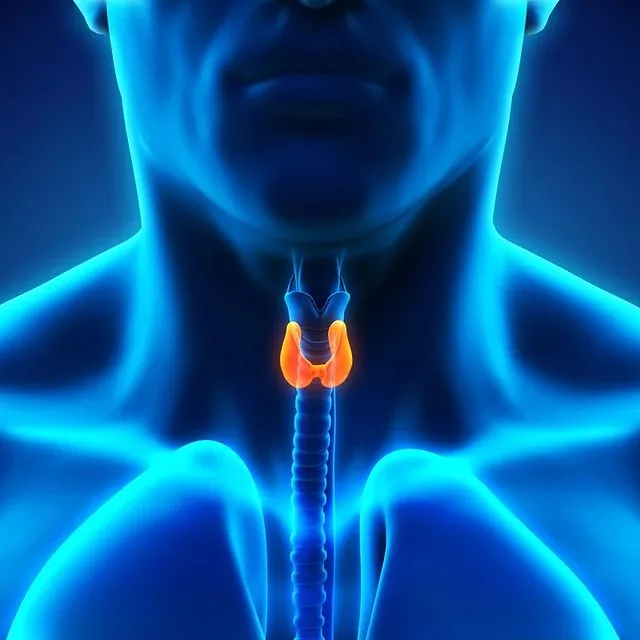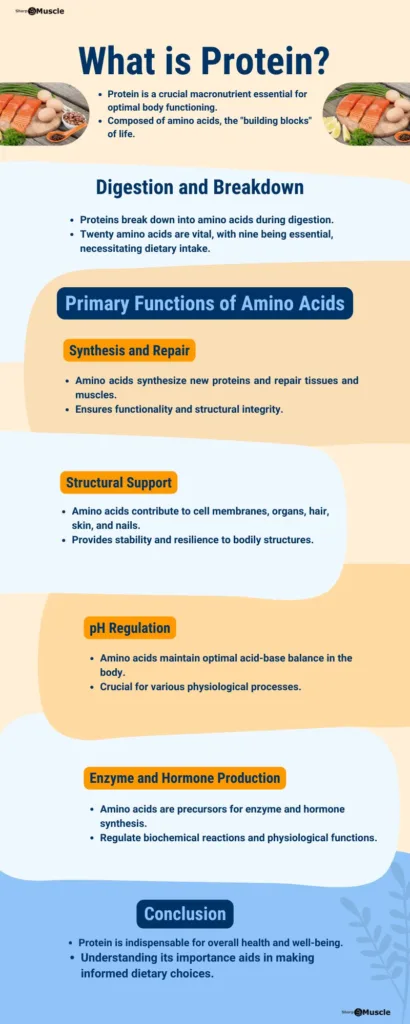The thyroid diet plan is tailored to the specific needs of individuals with thyroid disorders, such as hypothyroidism or hyperthyroidism.
The main focus of a thyroid diet plan is to provide the necessary nutrients to support thyroid function and to help manage symptoms associated with thyroid disorders.
Some key components of a thyroid diet plan include eating a variety of nutrient-dense foods, such as fresh fruits and vegetables, lean protein, whole grains, and healthy fats. While limiting processed foods, sugar, and foods that may interfere with thyroid function such as soy products.
Additionally, people with thyroid disorders may need to take supplements or medications to support their thyroid function.
It is important to consult with a healthcare professional or a dietitian before starting a thyroid diet, as it is tailored to an individual’s needs.
What is a thyroid?

The thyroid is a gland in the neck that produces hormones that regulate the metabolism and energy levels, and other bodily functions. The thyroid gland produces two main hormones: thyroxine (T4) and triiodothyronine (T3). These hormones control the body’s metabolism, which is the process by which the body converts food into energy.
Thyroid disorders are conditions that affect the function of the thyroid gland. The most common thyroid disorders are hypothyroidism, which occurs when the thyroid gland doesn’t produce enough hormones, and hyperthyroidism, which occurs when the thyroid gland produces too much hormones.
Symptoms of thyroid disorders
The symptoms of thyroid disorders can vary depending on the specific condition and the severity of the disorder. Some common symptoms of thyroid disorders include:
Hypothyroidism (underactive thyroid):
- Fatigue
- Weight gain
- Cold intolerance
- Dry skin
- Constipation
- Depression
- Slow heart rate
- Hoarseness
- Menstrual irregularities
Hyperthyroidism (overactive thyroid):
- Weight loss
- Heat intolerance
- Sweating
- Rapid heart rate
- Tremors
- Anxiety
- Insomnia
- Irritability
- Bulging eyes
- Menstrual irregularities
Thyroid disorders can be caused by a variety of factors, including autoimmune diseases, genetic factors, and exposure to certain chemicals.
Thyroid disorders can be treated with medication, lifestyle changes, and/or surgery. It’s important to note that these symptoms can also be caused by other conditions, so it’s important to consult with a healthcare professional for proper diagnosis and treatment.
Thyroid level
| Low | 0.3 or less |
| Good | 0.3/0.4 – 2.0/5.0 |
| High | 5.0 or more |
Thyroid function is typically evaluated through a blood test called a thyroid function test. This test measures the levels of thyroid hormones (T4 and T3) and thyroid-stimulating hormone (TSH) in the blood. TSH is produced by the pituitary gland and stimulates the thyroid gland to produce T4 and T3.
An abnormal level of thyroid hormones can indicate a thyroid disorder, such as hypothyroidism (low levels of thyroid hormones) or hyperthyroidism (high levels of thyroid hormones). A healthcare professional will interpret the test results, taking into account the patient’s symptoms, medical history and other factors, to make a diagnosis.
It’s important to note that even if the results are within the reference range, it doesn’t exclude the possibility of having a thyroid disorder, and a healthcare professional should evaluate the patient in total and not just by lab results.
Important Nutrients to Support Thyroid Function
There are several important nutrients that are necessary to support thyroid function and to help manage symptoms associated with thyroid disorders.
- Iodine: Iodine is essential for the production of thyroid hormones. Foods high in iodine include seafood, seaweed, and iodized salt.
- Selenium: Selenium is a mineral that plays a crucial role in the production and metabolism of thyroid hormones. Foods high in selenium include Brazil nuts, tuna, and turkey.
- Zinc: Zinc is essential for the proper functioning of the thyroid gland. Foods high in zinc include oysters, beef, and pumpkin seeds.
- Vitamin D: Vitamin D is essential for overall thyroid health and can help to regulate the immune system. Good sources of vitamin D include fatty fish, mushrooms, and fortified foods.
- Vitamin A: Vitamin A is essential for the proper functioning of the thyroid gland and can help to regulate the immune system. Good sources of vitamin A include sweet potatoes, carrots, and leafy greens.
- Omega-3 fatty acids: Omega-3 fatty acids can help to reduce inflammation, which is important for overall thyroid health. Good sources of omega-3 fatty acids include fatty fish, flaxseed, and chia seeds.
Harmful nutrients
There are certain nutrients that can be harmful for people with thyroid disorders, as they may interfere with thyroid function. Some examples include:
Gluten: People with Hashimoto’s thyroiditis, an autoimmune disorder that affects the thyroid, may have a sensitivity to gluten. Consuming gluten can cause inflammation in the body, which can exacerbate symptoms of the disease.
Soy: Soy contains compounds called isoflavones that can mimic the effects of the hormone estrogen in the body. This can be harmful for people with thyroid disorders, as it can interfere with the body’s ability to produce and use thyroid hormones.
Cruciferous vegetables: Vegetables such as broccoli, cauliflower, Brussels sprouts, and cabbage contain compounds called goitrogens, which can interfere with thyroid function. These vegetables should be consumed in moderation, if at all, for people with thyroid disorders.
Processed foods: Processed foods are high in added sugars, sodium and unhealthy fats, which can contribute to inflammation in the body and exacerbate symptoms of thyroid disorder.
High levels of fluoride: Fluoride, a mineral that is added to some public water supplies, can interfere with the production of thyroid hormones. People with thyroid disorders should be careful when consuming water that has been treated with fluoride.
Foods to Eat or Avoid on a Thyroid Diet
Each person may have different nutritional needs depending on their condition and other factors. It is best to consult a healthcare professional or dietitian for personalized recommendations.
Foods to eat on a thyroid diet:
- Seafood and fish such as salmon, tuna, and sardines, which are rich in iodine.
- Meat, poultry, and eggs, which are good sources of protein and zinc.
- Leafy greens, such as spinach and kale, which are rich in antioxidants, vitamins and minerals
- Berries, which are rich in antioxidants and vitamin C
- Nuts, seeds, and avocados, which are good sources of healthy fats and fiber.
- Whole grains, such as quinoa, brown rice and oatmeal, which provide energy and essential nutrients
- Non-caffeinated herbal tea
Foods to avoid on a thyroid diet:
- Gluten-containing grains such as wheat, barley, and rye
- Processed foods which are high in added sugars, sodium, and unhealthy fats
- Soy products, as they contain compounds that can mimic the effects of estrogen in the body
- Cruciferous vegetables such as broccoli, cauliflower, Brussels sprouts, and cabbage, which contain goitrogens that can interfere with thyroid function.
- Fluoridated water
- High-caffeine beverages
Thyroid diet plan
Upon waking up
| INGREDIENTS | QUANTITIES |
|---|---|
| Parsley tea | 1 cup |
Breakfast
| INGREDIENTS | QUANTITIES |
|---|---|
| OPTION-1: | |
| Egg white (boiled) | 2 |
| Apple | 1 |
| Milk | 250ml |
| OPTION-2: | |
| Oats | ½ cup |
| Apple | ½ |
| Almonds | 10 |
Afternoon snack
| INGREDIENTS | QUANTITIES |
|---|---|
| OPTION-1: | |
| Walnuts or Almonds or Cashew | 28g |
| Pear | 1 |
| Coffee or Green or Herbal Tea | 1 cup |
| OPTION-2: | |
| Papaya | 1 cup |
| Guava or Grapes | 1 cup |
| Cashews (non-salted) | 10 |
| Coffee or Green or Herbal Tea | 1 cup |
Lunch
| INGREDIENTS | QUANTITIES |
|---|---|
| OPTION-1: | |
| Brown rice | ½ cup |
| Beans or Lentil | 1 cup |
| Yogurt (low-fat) | 1 cup |
| OPTION-2: | |
| Brown rice | ½ cup |
| Chicken curry (cooked in coconut oil) | 200 – 250g |
| Salad | 1 plate |
Evening snack
| INGREDIENTS | QUANTITIES |
|---|---|
| OPTION-1: | |
| Chickpeas (roasted) | 1 cup |
| Milk | 200ml |
| Almonds | 10 |
| OPTION-2: | |
| Black grapes | 1 cup |
| Orange | 1 |
| or Pomegranate | 1 cup |
Dinner
| INGREDIENTS | QUANTITIES |
|---|---|
| OPTION-1: | |
| Chapati – gluten free floor | 1 |
| Lentil (mix – brown, yellow, green) (cooked in olive oil) | 1 cup |
| Salad (mix – cucumber, tomato, onion) | 1 plate |
| OPTION-2: | |
| Tomato soup (homemade) or Chicken soup | 1 bowl |
| Egg whites (boiled) | 2 |
Thyroid diet tips
Here are some tips for following a thyroid diet:
- Consult with a healthcare professional or a dietitian: A thyroid diet should be tailored to your specific needs and should be based on your individual condition and other factors.
- Include iodine-rich foods in your diet: Iodine is essential for the production of thyroid hormones, so make sure to include seafood, seaweed, and iodized salt in your diet. 1 2
- Get enough selenium: Selenium is a mineral that plays a crucial role in the production and metabolism of thyroid hormones. Good sources of selenium include Brazil nuts, tuna, and turkey. 3 4
- Limit processed foods: Processed foods are high in added sugars, sodium, and unhealthy fats, which can contribute to inflammation in the body and exacerbate symptoms of thyroid disorders. 5
- Avoid foods that can interfere with thyroid function: Avoid gluten, soy products, and cruciferous vegetables, which can interfere with thyroid function.
- Take supplements as recommended by your healthcare professional: Some people with thyroid disorders may need to take supplements or medications to support thyroid function. 6 7
- Exercise regularly: Regular exercise can help to boost metabolism and improve overall health. 8 9
- Get enough sleep: Good sleep hygiene is important for overall health, including thyroid function. 10 11
- Manage stress: Chronic stress can have a negative impact on thyroid function, so it’s essential to find ways to manage stress, such as through meditation, yoga, or other stress-management techniques. 12
- Be consistent with your diet: Try to stick to your diet as much as possible, and avoid drastic changes in your diet.
Thyroid workout plan
A workout plan for people with thyroid disorders should be tailored to the individual’s specific needs and should be based on their condition and fitness level.
Here is an example of a workout plan for people with thyroid disorders:
Monday:
- Warm-up: 10-minute walk or light jog
- Resistance training: 3 sets of 10–15 reps of exercises such as squats, lunges, and leg press
- Cardio: 30-minute walk or light jog
- Cool-down: 5–10 minutes of stretching
Tuesday:
- Rest day
Wednesday:
- Warm-up: 10-minute walk or light jog
- Yoga or Pilates: 45-minute class
- Cool-down: 5–10 minutes of stretching
Thursday:
- Rest day
Friday:
- Warm-up: 10-minute walk or light jog
- Resistance training: 3 sets of 10–15 reps of exercises such as rows, bicep curls, and shoulder press
- Cardio: 30-minute walk or light jog
- Cool-down: 5–10 minutes of stretching
Saturday:
- Rest day
Sunday:
- Warm-up: 10-minute walk or light jog
- Cardio: 30-minute walk or light jog
- Cool-down: 5–10 minutes of stretching
It’s important to note that this is just an example, and a workout plan should be tailored to an individual’s needs, medical history, and other factors. It’s recommended to consult with a healthcare professional or a personal trainer before starting a workout plan to ensure it meets your specific needs.
Bottom line
A thyroid diet is that, it should provide the body with the necessary nutrients to support thyroid function and to help manage symptoms associated with thyroid disorders. This including iodine-rich foods in the diet, getting enough selenium, limiting processed foods, avoiding foods that can interfere with thyroid function and taking supplements as recommended by a healthcare professional.
A thyroid diet plan should also aim to provide adequate amounts of vitamins and minerals that are important for thyroid function, such as vitamin D, vitamin A, zinc and omega-3 fatty acids. It’s also essential to maintain a healthy weight, as being overweight or underweight can affect thyroid function.
It’s also essential to avoid foods that can aggravate autoimmune conditions, such as gluten, soy and cruciferous vegetables.
Overall, a balanced and healthy diet that provides the body with all the necessary nutrients is essential for maintaining good thyroid health.
A healthy diet, regular exercise, and stress management are all essential components of managing thyroid disorders. Following a healthy diet and regular exercise, as well as stress management techniques, can help to improve symptoms and overall health.
Additionally, it’s essential to be aware of any potential food allergies or sensitivities, as these can contribute to inflammation in the body and exacerbate symptoms of thyroid disorders. It’s also important to be consistent with your diet and exercise routine, as drastic changes can be harmful.
Lastly, it’s essential to have regular check-ups with your healthcare professional and have your thyroid hormone level checked, to ensure that your condition is well-controlled.
Overall, managing a thyroid disorder requires a holistic approach, and it’s essential to work with a healthcare professional to develop a personalized plan that takes into account your individual condition, symptoms, and other factors; and make lifestyle changes to support the health of the thyroid gland and improve overall well-being.
- Zimmermann MB. “The role of iodine in human growth and development.” Semin Cell Dev Biol. 2011 Aug;22(6):645-52. doi: 10.1016/j.semcdb.2011.07.009. Epub 2011 Jul 23. PMID: 21802524.[↩]
- Dilas LT, Bajkin I, Icin T, Paro JN, Zavisić BK. “[Iodine and thyroid gland with or without nuclear catastrophe].” Med Pregl. 2012 Nov-Dec;65(11-12):489-95. Serbian. doi: 10.2298/mpns1212489t. PMID: 23297615.[↩]
- Triggiani V, Tafaro E, Giagulli VA, Sabbà C, Resta F, Licchelli B, Guastamacchia E. “Role of iodine, selenium and other micronutrients in thyroid function and disorders.” Endocr Metab Immune Disord Drug Targets. 2009 Sep;9(3):277-94. doi: 10.2174/187153009789044392. Epub 2009 Sep 1. PMID: 19594417.[↩]
- Ventura M, Melo M, Carrilho F. “Selenium and Thyroid Disease: From Pathophysiology to Treatment.” Int J Endocrinol. 2017;2017:1297658. doi: 10.1155/2017/1297658. Epub 2017 Jan 31. PMID: 28255299; PMCID: PMC5307254.[↩]
- Juanjuan Zhang, Fan Zhu, Zhixia Cao, Sabina Rayamajhi, Qing Zhang, Li Liu, Ge Meng, Hongmei Wu, Yeqing Gu, Shunming Zhang, Tingjing Zhang, Xuena Wang, Amrish Thapa, Jun Dong, Xiaoxi Zheng, Xu Zhang, Xinrong Dong, Xing Wang, Shaomei Sun, Ming Zhou, Qiyu Jia, Kun Songb and Kaijun Niu. “Ultra-processed food consumption and the risk of subclinical thyroid dysfunction: a prospective cohort study.” Critical Reviews in Food Science and Nutrition, 2022, 1. DOI: 10.1080/10408398.2022.2084359.[↩]
- Talaei A, Ghorbani F, Asemi Z. “The Effects of Vitamin D Supplementation on Thyroid Function in Hypothyroid Patients: A Randomized, Double-blind, Placebo-controlled Trial.” Indian J Endocrinol Metab. 2018 Sep-Oct;22(5):584-588. doi: 10.4103/ijem.IJEM_603_17. PMID: 30294564; PMCID: PMC6166548.[↩]
- Benvenga S, Feldt-Rasmussen U, Bonofiglio D, Asamoah E. “Nutraceutical Supplements in the Thyroid Setting: Health Benefits beyond Basic Nutrition.” Nutrients. 2019 Sep 13;11(9):2214. doi: 10.3390/nu11092214. PMID: 31540254; PMCID: PMC6770945.[↩]
- Speakman JR, Selman C. “Physical activity and resting metabolic rate.” Proc Nutr Soc. 2003 Aug;62(3):621-34. doi: 10.1079/PNS2003282. PMID: 14692598.[↩]
- Swift DL, Johannsen NM, Lavie CJ, Earnest CP, Church TS. “The role of exercise and physical activity in weight loss and maintenance.” Prog Cardiovasc Dis. 2014 Jan-Feb;56(4):441-7. doi: 10.1016/j.pcad.2013.09.012. Epub 2013 Oct 11. PMID: 24438736; PMCID: PMC3925973.[↩]
- Nazem MR, Bastanhagh E, Emami A, Hedayati M, Samimi S, Karami M. “The relationship between thyroid function tests and sleep quality: cross-sectional study.” Sleep Sci. 2021 Jul-Sep;14(3):196-200. doi: 10.5935/1984-0063.20200050. PMID: 35186196; PMCID: PMC8848531.[↩]
- Green ME, Bernet V, Cheung J. “Thyroid Dysfunction and Sleep Disorders.” Front Endocrinol (Lausanne). 2021 Aug 24;12:725829. doi: 10.3389/fendo.2021.725829. PMID: 34504473; PMCID: PMC8423342.[↩]
- Helmreich DL, Tylee D. “Thyroid hormone regulation by stress and behavioral differences in adult male rats.” Horm Behav. 2011 Aug;60(3):284-91. doi: 10.1016/j.yhbeh.2011.06.003. Epub 2011 Jun 12. PMID: 21689656; PMCID: PMC3148770.[↩]















